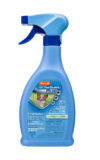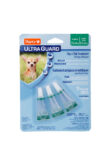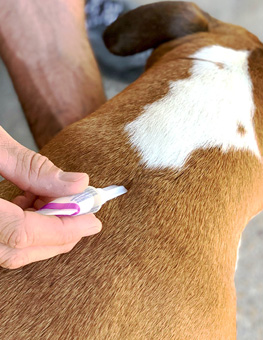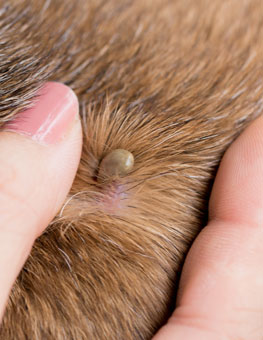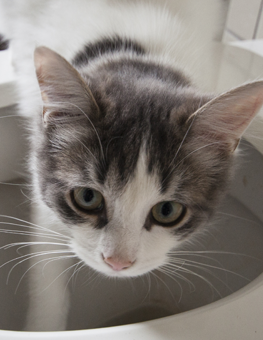The Effects of Climate Change on Flea & Tick Season
There is some definitive evidence that the temperatures are trending upwards for planet Earth. This may have important implications for our pets, especially those that go or live outside.

Temperatures are warmer for longer, and one result is that the ectoparasite season is becoming longer.
Even if your pets are in contact with other pets only at daycare, or at the groomer, or in parks, they still can be at risk for encountering ectoparasites (external parasites) such as fleas, ticks, mites, mosquitoes, and lice.
“Indoor “cats that only go outside occasionally are also at an increased risk for running into these critters. And, it is important to remember that we can inadvertently bring insects or ticks into our homes on our clothing or shoes, which can also impact our furry family members.
How Climate Change Can Affect Flea & Tick Infestation
One result of the increased temperatures is that the ectoparasite season is becoming longer than it had been in the past. It used to be that after the first frost in your area of the country, there would be less risk for fleas and ticks; however, since the temperatures are warmer for longer, the season is now longer. In short, this means more parasites for longer periods of time. More specifically, there is a longer period for parasites to thrive and multiply, so they are active longer, which means a longer period of exposure for our pets, especially for those of us that include our pets in our outdoor lifestyle (hiking, camping, trail walking, etc.).
Fleas are very small and hard to spot, but immature ticks are also very tiny and, often go unnoticed. Fleas can infest and live on your pet and can give your pet tapeworms, which are dangerous for them and for you too. Ticks can transmit diseases, such as Anaplasmosis, Rocky Mountain Spotted fever and Lyme disease, to dogs, cats and humans. While mosquitoes are known to carry several diseases as well, the main concern for companion animals is heartworm. Bottom line, there is a lot out there, so protection plays an essential role in overall health and well-being for humans and their pets.

Many vets recommend using some form of preventative year-round, to truly protect your pet.
Flea & Tick Prevention
There are many products available to prevent ectoparasites from biting and transmitting disease to your pet. There are topical drops, collars and oral preventatives. There are also powders, dips, shampoos and aerosolized ‘bombs’ if your pet develops a flea infestation and you need to decontaminate your pet and home. Because of the increase in temperature and longer parasite season, many veterinarians now recommend using some form of preventative year-round, as this is the best way to truly protect your pet from disease transmission.
There’s no need to take risk unnecessarily, when various preventatives are available over the counter and through your veterinarian. Be sure to speak with your veterinarian to see which type of product works best for you and your pet’s lifestyle. This way, you and your furry friend can both breathe easier with peace of mind during your outdoor adventures.



